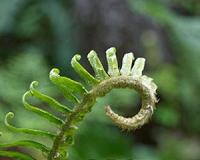 |
Exeter UK (SPX) Jan 25, 2011 An Anglo-Swiss research project has found that the impact of disease-resistant genetically-modified wheat plants on insects may be negligible. Many studies have looked at the effects of genetically-modified (GM) plants on single non-target insects. However, agro-ecosystems are characterised by numerous insect species forming food webs. This study is the first to investigate different transgenic disease-resistant wheat lines and their effect on the structure of whole aphid-parasitoid food webs. The findings are published in the Royal Society journal, Biology Letters, in the paper: "Aphid-parasitoid community structure on genetically modified wheat." The study was carried out by Simone von Burg, a PhD student at the University of Zurich, in collaboration with Dr Frank van Veen of the University of Exeter and with Dr Fernando Alvarez-Alfageme and Dr Jorg Romeis of the Agroscope Reckenholz-Tanikon Research Station ART, also in Zurich. A concern raised with respect to genetic modification (GM) of crops is that the plants may not just affect the disease or pest to which they are meant to be resistant, but may also have negative effects on other valued, non-target species. Dr van Veen said: "The main conclusion in a nut shell is that while genetic modification has considerable ecological effects, the differences between the GM wheat strains and their non-GM counterparts are similar to the differences we find between different conventional (non-GM) wheat strains. Moreover, these differences were not consistent between the two study years. "So, within this context, there appear to be no ecological problems associated with the genetically-modified wheat lines tested in this study." The experiments took place in Switzerland but the results were analysed in the UK at the laboratories of the Centre for Ecology and Conservation at Exeter's Cornwall Campus where Dr van Veen is based. They looked at the insect food webs that naturally colonised a number of disease-resistant GM and non-GM strains of wheat in a semi-field and open field system. The study compared the networks of feeding interactions of three species of herbivores that feed on the wheat, primary parasitoid wasps (eight species) that feed on the herbivores and secondary parasitoid wasps (13 species) that feed on the primary parasitoids. The properties of such interaction networks are thought to affect the dynamics of these complex systems and thereby the probability of insect pest outbreaks. Simone von Burg added: "It is interesting to see that plant traits can affect the ecological community all the way up to the 4th trophic level, three feeding links removed from the plant, something which has been reported for several plant species now." To view the paper click here.
Share This Article With Planet Earth
Related Links University of Exeter Farming Today - Suppliers and Technology
 Nailing Down A Crucial Plant Signaling System
Nailing Down A Crucial Plant Signaling SystemStanford CA (SPX) Jan 25, 2011 Plant biologists have discovered the last major element of the series of chemical signals that one class of plant hormones, called brassinosteroids, send from a protein on the surface of a plant cell to the cell's nucleus. Although many steps of the pathway were already known, new research from a team including Carnegie's Ying Sun and Zhiyong Wang fills in a missing gap about the mechanism ... read more |
|
| The content herein, unless otherwise known to be public domain, are Copyright 1995-2010 - SpaceDaily. AFP and UPI Wire Stories are copyright Agence France-Presse and United Press International. ESA Portal Reports are copyright European Space Agency. All NASA sourced material is public domain. Additional copyrights may apply in whole or part to other bona fide parties. Advertising does not imply endorsement,agreement or approval of any opinions, statements or information provided by SpaceDaily on any Web page published or hosted by SpaceDaily. Privacy Statement |